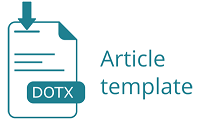Combination Of Extension And Triggering Methods Of Changes In Family Head Attitudes About Stop Open Defecation Free (ODF)
DOI:
https://doi.org/10.32807/jkp.v14i1.405Keywords:
Counseling and Triggering, Open Defecation FreeAbstract
Open defecation free health behavior problems in Indonesia are still prevalent, one of which is in Bumiharjo Village in 2016 ODF behavior is still carried out by 561 families. In 2018 the village of Bumiharjo will start carrying out Community Led Total Sanitation (CLTS) counseling and triggering activities. The combination of counseling and triggering methods for changing attitudes related to ODF has not yet been the basis of this research. This type of quantitative research with a quasi-experimental design. Has been carried out in March - November 2019, research subject of the head of the family who is still doing open defecation. A sample of 60 respondents divided into two groups, the sample taken by purposive sampling. Retrieval of data using a questionnaire with the results found the value of p = 0.001 so that it can conclude there is a change in attitude about stopping Open Defecation Free  before and after triggering and counseling to the Head of the Family in Purwosari Village, Natar District, South Lampung Regency. It recommended that counseling and triggering activities carried out on an ongoing basis and the availability of facilities for open defecation free, funds, and collaboration across programs and sectors.
References
Anggoro, F. F., & Ningrum, P. T. (2015). Analysis of Factors Related to Latrine Utilization in Coffee Plantation Areas (Analysis of Factors Associated with the Use of Toilets at Coffee Plantation Region). E-Journal of Health Library, 3 (1), 171–178.
Azwar, S. (2016). Human attitude: theories and measurements. Liberty.
Beaudry-Bellefeuille, I., Booth, D., & Lane, S. J. (2017). Defecation-Specific Behavior in Children with Functional Defecation Issues: A Systematic Review. The Permanente Journal, 21, 1–8.
https://doi.org/10.7812/TPP/17-047
Bhatt, N., Budhathoki, S. S., Lucero-Prisno, D. E., Shrestha, G., Bhattachan, M., Thapa, J., ... Pokharel, P. K. (2019). What motivates open defecation? A qualitative study from a rural setting in Nepal. PLoS ONE, 14 (7), 1–15. https://doi.org/10.1371/journal.pone.0219246
Chitra Dewi, J. A. N. (2019). ANALYSIS OF Environmental Factors On Behavior Chapter Behavior Of Latmatang Village, West Maluku District. 9 (2), 139–150.
Cronin, A. A., Gnilo, M. E., Odagiri, M., & Wijesekera, S. (2017). Equity implications for sanitation from recent health and nutrition evidence. International Journal for Equity in Health, 16 (1), 211. https://doi.org/10.1186/s12939-017-0709-5
Lampung Province Health Office. (2016). Lampung Province Health Profile in 2016. Lampung Provincial Health Office, (44).
Directorate of Environmental Health, Ministry of Health, Republic of Indonesia, & Millennium Challenge Account. (2016). Guidelines for Implementing Village Triggering.
Dwiana, A. (2017). Determinants of bowel behavior in coastal communities in South Buton district. Journal BERDIKARI, Volume 33 (Number 6), Pages 273-276.
Febriani, W., & Sari, N. (2016). Factors Affecting Changes in Behavior Stop Open Defecation (ODF): Study in the CBS Program in Sumbersari Metro Selatan Village 2016. World Journal of Public Health, 5 (September), 121.
Hutton, G., & Chase, C. (2016). The knowledge base for achieving the sustainable development goals targets on water supply, sanitation and hygiene. International Journal of Environmental Research and Public Health, 13 (6), 1–35. https://doi.org/10.3390/ijerph13060536
Indriyani, Y., Yuniarti, Y., & Nur Latif, R. V. (2016). Study of Community-Based Total Sanitation Health Promotion Strategy (Stbm) in Tirto Village, Pekalongan Barat District, Pekalongan City. Unnes Journal of Public Health, 5 (3), 240. https://doi.org/10.15294/ujph.v5i3.11286
Mara, D. (2017). The elimination of open defecation and its adverse health effects: A moral imperative for governments and development professionals. Journal of Water Sanitation and Hygiene for Development, 7 (1), 1–12. https://doi.org/10.2166/washdev.2017.027
Mubarak, W. I., et al. (2012). Health Promotion An Introduction to the Learning Process. Yogyakarta: Graha Science.
Murwati. (2012). Vacuum Technolgy for a Better Global Environment. Shinku / Journal of the Vacuum Society of Japan, 41 (10), 856–862. https://doi.org/10.3131/jvsj.41,856
Notoatmodjo. (2012). Health Promotion and Health Behavior. Jakarta: PT. Rineka Cipta.
Notoatmodjo. (2014). Health Behavioral Sciences. Jakarta: Rineka Cipta.
O'Connell, K. (2014). What Influences Open Defecation and Latrine Ownership in Rural Households ?: Findings from a Global Review Scaling Up Rural Sanitation. (August), 38.
Okullo, J. O., Moturi, W. N., & Ogendi, G. M. (2017). Open Defecation and Its Effects on the Bacteriological Quality of Drinking Water Sources in Isiolo County, Kenya. Environmental Health Insights, 11. https://doi.org/10.1177/1178630217735539
Osumanu, I. K., Kosoe, E. A., & Ategeeng, F. (2019). Determinants of Open Defecation in the Wa Municipality of Ghana: Empirical Findings Highlighting Sociocultural and Economic Dynamics among Households. Journal of Environmental and Public Health, 2019. https://doi.org/10.1155/2019/3075840
Pudjaningrum, P., Wahyuningsih, N. E., & Darundiati, Y. H. (2016). The Effect of Triggering Methods on Changing ODF Behavior in the Community of Kauman Kidul Village, Salatiga City. Journal of Public Health, Diponegoro University, 4 (5), 100-108.
Qurrotul Aeni, Feira Beniarti, B. E. warsito2. (2015). The Effect Of Health Education With Video Playing Method About Phbs Washing Hands Methods Clean and Healthy Living methods are grouped into 5 settings namely PHBS in Schools, PHBS in Households, PHBS in Institutions Workplace Health promotion in the environment. 7 (2), 5–9.
Saleem, M., Burdett, T., & Heaslip, V. (2019). Health and social impacts of open defecation on women: A systematic review. BMC Public Health, 19 (1). https://doi.org/10.1186/s12889-019-6423-z




